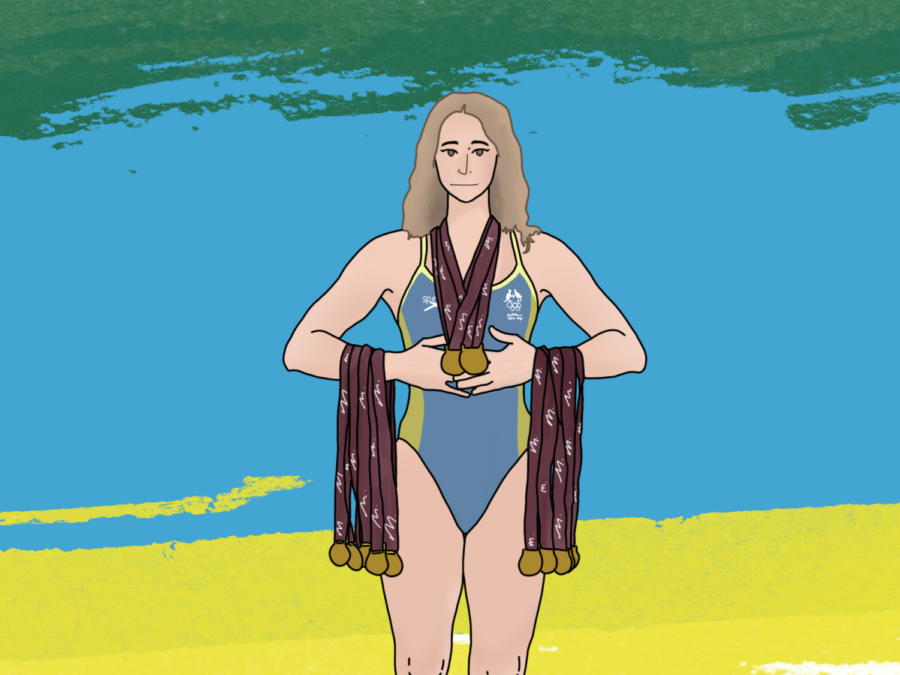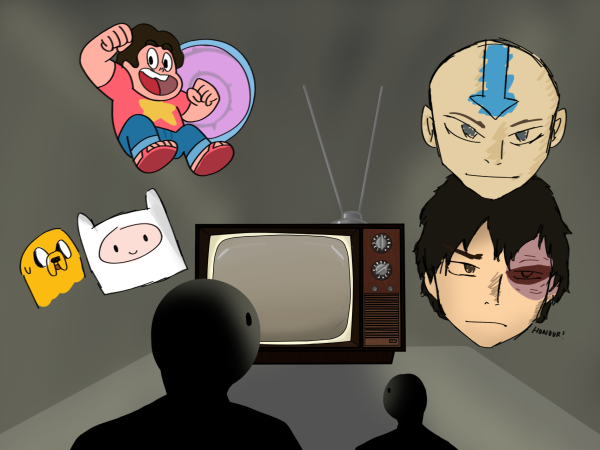Lessons I learned too late
November 16, 2022
It feels kind of weird now that I’ve finished up with school, the HSC and all of that, but recently I have found myself with a lot of time on my hands. With said time, I’ve given some thought and reflected upon my time at William Clarke College, as well as being a competitive swimmer outside of school, and compiled a list of 5 lessons I wish I’d learnt years ago.
Mind over matter
For anyone who knew me, this was something I always stood by during my time at WCC, but only now can I really appreciate the depth of how much this impacted everything I did. Looking at this with a swimming focus, going into big races (such as Olympic Trials), when you are standing behind the blocks with the best of the best, it is easy to feel like you couldn’t possibly be good enough. I was never the biggest, the strongest or had the best technique, and if that’s the way I looked at it, I’d have lost the race before it even began. For those of you who tuned into the Olympic Games, there were countless events across the games, where it came down to the wire at the end of a race. These races weren’t decided by who was bigger, stronger or who was better on paper, but they ultimately came down to who wanted it more. My good mate Rob Napoli once told me this, “Nobody is starting the race ahead of you, you all start at the block, when the buzzer goes. Don’t count yourself out of it before it begins.”
Now, if we bring this back to the WCC lens, in every one of your subjects, there’s always one or two students who look like they are better than the rest of the field. They may have studied that unit outside of school already, or maybe you know that this is just one of their specialty subjects. If you let this get to your head, you only sell yourself short. And then guarantee that you will not perform to your highest ability. The ability to motivate yourself and drive yourself to wanting it more, that’s how you find the energy and strength to put the work in that others aren’t willing to.
Discipline.
I know it’s a cliché one but hear me out.
I’m sure you will have heard similar things to this in your time at school, because trust me, I heard it way too much myself. But the impact of doing things you don’t really want to in the short term, ensures massive gains in the long term. Getting up for training at 4:30 most mornings before school- never fun. Staring at a black line and exhausting myself in training- never fun. But the repetitions are what make the most gains. Being committed to long hours every week in the water allows swimmers to perform at the top level, make massive improvements, and compete among the best.
It’s the same with studying. And if you knew me at William Clarke, I was not very good at being disciplined and studying consistently throughout the year. And it always came back to bite me. I saw my mates putting in time every afternoon. Studying, revising and making sure that they understood everything. But that wasn’t me. My mates were all getting early entry, and going into the HSC exams, the difference in our approaches really shone through. We all know studying is good, but a lot of us struggle to see the purpose to it and then give in to short term thinking. In order to properly unlock your potential, you have to have a long-term strategy, and be striving for those long-term goals. Without commitment, you will never start, but without consistency and dedication, you’ll never finish.
The importance of your network
Now, when you look at swimming, and think of swimmers, it is so easy to believe that it is an individual sport. “But Callum,” you say, “you swim on your own against other people swimming on their own. That’s the textbook definition of an individual sport.”
Just let me finish.
Please.
Swimming, just like everything else in life, is largely decided by the unseen hours, the training, the practise, not just the race. The environment that you put yourself in when you are trying to put the work in (from my experience), is the BIGGEST factor in reaping the benefits from your effort. In both lockdowns, this really came to light. With pools closed and training obviously unable to continue, I had to improvise. I was swimming in my backyard pool, with a bungee cord from the deck strapped to my waist, doing stationary swimming. Now in theory, this sort of practise must produce similar results to swimming normally, right? It didn’t. Returning to a squad environment, with people who had similar goals to mine, and the dedication to bettering themselves, we all grew and improved in such a way that is not replicable on your own.
Putting this, again, in the context of school, you can go to school, sit by yourself and listen, put in the hard work, and go through stressful periods by yourself. And I’m sure in doing that you’ll see some improvement from where you were previously. However, if you can find yourself a network of people, maybe your group of mates, maybe a couple of closer friends, and all have the same dedication and determination to doing the best you can, the improvements you will see are (struggling to find a word to do this justice…) unbelievable. And I’m not saying to not enjoy yourself, because if you don’t have a passion for what you are doing, you’re really going to struggle. But in the long run, the benefit of having a supportive network of people as you are trying to improve, it is so so valuable.
Looking after yourself
Here comes my mental health point.
I’ve already gone over the importance of your mind in mind over matter, and the importance of looking after your mental health is absolutely vital throughout high school and as you continue on in life. I’ve been in competitive swimming for nearly 10 years now, and I have seen some of the most talented athletes fall off their wagon because of their mental health issues that grew too much. It is vital to take care of yourself mentally as where the mind goes, your body follows. With my own experiences with poor mental health, I can say, as much as I tried to avoid it and fight on my own, William Clarke has the most amazing teachers and people who can support you through whatever you are going through. Don’t be afraid to reach out and ask for help. It’s just like having an injury. Something as small as one little thing not feeling right, if you continue trying to ignore it and push through the pain, small injuries can grow to become worse to a point where its impact is much worse. I’ve already gone over the importance of having a good network but having people around you that you can be vulnerable with and open with about things you are struggling with is just one of the many ways that I could recommend thinking about this.
Looking after yourself is not just about mental health either. Good physical health, and social health are also vital to surviving your time in high school (shout out the small parts of the PDHPE curriculum I remember). It’s all stuff you have heard before but making sure that you aren’t up pulling all-nighters regularly and getting out there for a run, for a swim, anything, it all makes a huge difference to how you can function during the day at school, and in everything else you want to do.
Play to your strengths
The final point I have plays out less in the day-to-day school life but is honestly something that I don’t see people doing enough of.
In swimming, one of my main events is the 400-metre Individual Medley. This event is a gruelling one, consisting of 100 meters of each stroke, one after another. Everyone in swimming has preferred strokes, and in this event, it really comes down to who plays to their strengths the best. For me, I am better at backstroke and breaststroke, and really suck at butterfly and freestyle. So, when I get into a race at a high level, I must approach the race differently to others. I can’t expect to race the butterfly leg at the same speed as everyone else, because even my PB for 100m fly is slower than what they do in the 400m IM. I must pace myself, prepare for the backstroke and breaststroke legs and then use those sections to move up the field with less effort than everyone else. My mate Daniel C in year 9 is absolutely insane at distance freestyle, and has a strong butterfly leg, so when he races 400 IM, he plays to his strengths, holding with everyone else in the field until it gets to the freestyle, then uses that to move up and take the race.
As much as it may feel like a stretch, this concept applies to your time at WCC. William Clarke is a safe environment to learn what your strengths are through the younger years, with all the subject choices that you have. You have time to find your interests and a place to try new things and if they don’t work out, there are limited consequences. You can figure out what subjects you are stronger at, the types of assessment you perform better in, what study techniques work for you and how you schedule your time outside of school. Yes, this takes a bit of effort and courage to try new things and intentionally reflect on what works and what doesn’t, but in the long run, this sort of intentional work pays huge profit in your later years of high school and as you move out into the world. If you spend all your time trying to force your way through subjects that you aren’t strong in because “they scale well” you’re only hindering yourself.
Final thoughts
Look, I read countless articles on We Are when I was in year 12, and to be honest, I didn’t really pay enough attention to the advice that was fed to me. I don’t know how many people out there are going to read this, let alone take it to heart, but if someone can learn from the lessons I wish I’d learnt years ago, that’s a win in my books.














